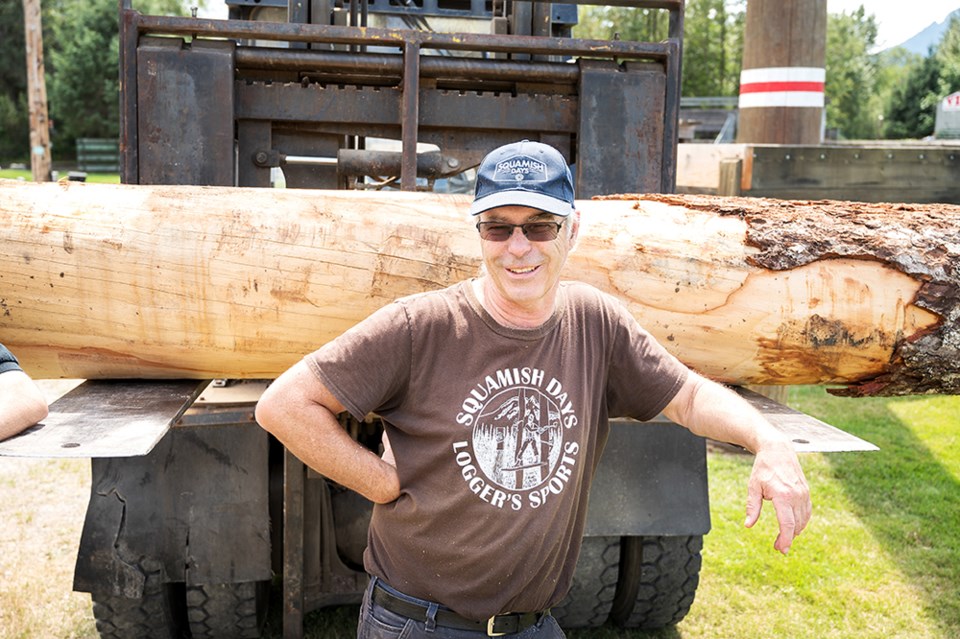Decades after he first got involved with 麻豆社国产Loggers Sports, and after almost 30 years as head of show, John Hurford is retiring after this year’s event.
“I started with 麻豆社国产Logger Sports in 1971,” he said. After a couple of years away in the middle of that decade, he returned with a vengeance. He competed in events, joined the committee and designed what is now the Al McIntosh Loggers Sports Grounds Stadium.
The original arena was down behind the high school, where ?cole Les Aiglons is now and “they wanted to trade the land from there to our current location. I was asked, because I was a draftsman, if I would come up with the layout and the design for the current location. So I took on that job and that’s where I got reconnected.”
The new location was just forested land and an all-volunteer team helped clear it before construction of the new arena.
“At that time, everybody said we were in the middle of nowhere but obviously we’re in the middle of town now,” Hurford said, laughing. “And we’re still there.”
Logging is in his blood. A 麻豆社国产original – “I was actually born in New Westminster and was brought back to Squamish, because there wasn’t a hospital yet,” he said — Hurford started helping out in his father’s logging contracting business when he was 13 or 14 years old.
麻豆社国产Days Loggers Sports Festival is an opportunity for successive generations to understand the way the industry operated when 麻豆社国产was a fledgling community, he said. The methods used then bear almost no resemblance to how logging is done now, which makes these activities a sort of heritage craft.
“Most of the sports use traditional hand tools and things that were used in the past. A lot of it now is modernized,” said Hurford. “Today, a logger doesn’t use an axe. They actually hardly even use chainsaws anymore, it’s all mostly by machine.”
He equates loggers sports to an outdoorsman learning how to light a fire.
“These people are learning how to use axes and hand saws and climbing and running and all those things are all learned through the sport versus an industry,” he said.
As someone who remembers the old ways of doing things, does Hurford have any regrets at the march of industrial progress?
“No, not really. There’s a certain amount of nostalgia about doing things with your own hands,” he said, but today’s forestry practices are safer and more efficient.
Having taken over the event’s leadership from Al McIntosh around 1990, Hurford sees this as a good time to move on.
“I added all these years up and I’ve been doing this for about 40 years,” he said. “I’ve been retired for about four years and I decided I want to do some other things before I’m 70. In order to do that, I’ve pretty much got to step down.”
He also wants to make room for younger people who’ve got fresh ideas.
“I want to give them the chance to step up to the plate and put their ideas to work,” he said. The newbies are about the age Hurford was when he designed the current arena, he noted, many in their early 30s.
“I look back at that and think, wow, we’re leaving a legacy for the future to work with, I look forward to seeing what’s to come and watching it all from the stands.”




